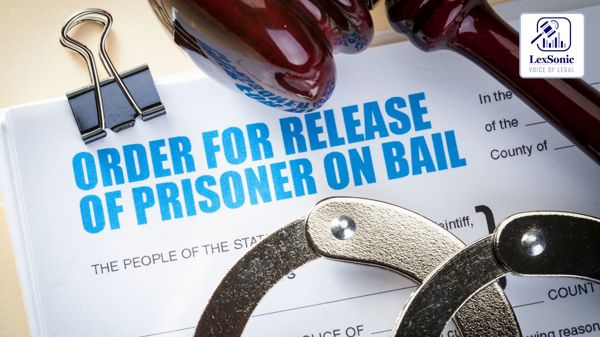In a recent case, an applicant, one of the four accused, sought bail in connection with alleged offences under the Narcotic Drugs and Psychotropic Substances Act, 1985 (NDPS Act). The charges against her were related to the transportation of narcotic drugs. The applicant, a woman with no prior criminal record, contended that she was unknowingly lured into the situation and was only accompanying the main accused for a minimal payment. She argued that there was no substantial evidence to link her directly to the possession or trafficking of the drugs.
Prosecution's Case:
According to the prosecution, the Narcotics Control Bureau (NCB) received confidential information regarding two individuals, Aftab and Sabir, who were allegedly carrying a substantial quantity of narcotic drugs. These individuals were traveling on a train from Hazrat Nizamuddin to LTT, Kurla, Mumbai. Upon reaching Mumbai on December 12, 2020, they were intercepted along with four women and two children, who were accompanying them.
During the search, the authorities found Charas concealed in the bags of Aftab and Sabir. While the narcotic substances were discovered in their possession, nothing was found with the applicant. Nonetheless, she was arrested based on her association with the main accused, as she was traveling with them in the same train.
The applicant had earlier applied for bail in the Sessions Court, Mumbai, but her plea was rejected. Subsequently, she moved the High Court for bail, arguing that the evidence against her was insufficient.
Applicant’s Argument:
The applicant’s counsel contended that she was an innocent party who had been made a scapegoat by the primary accused. She claimed to have been unaware of the drug trafficking activities and argued that she had no direct involvement with the contraband found in the possession of the other accused. Furthermore, she asserted that the NCB’s information did not specify her involvement, nor was there any valid evidence, such as a train ticket or reservation chart, linking her to the co-accused.
The applicant’s counsel also pointed out that the applicant had been paid a small amount of Rs. 5,000 to accompany the accused, which allegedly was in the form of toy currency notes, further suggesting that she was unaware of the criminal activity. The defense emphasized that the applicant was illiterate and did not understand the English language, which allegedly hindered her understanding of the legal proceedings against her.
Additionally, the counsel referred to the fact that another co-accused, Firoz, had been granted bail by the Sessions Court based on similar grounds. The defense sought parity in the applicant's case.
Prosecution's Counter-Argument:
The prosecution, however, argued that the applicant was in constructive possession of the narcotics, as she was traveling with the primary accused, Aftab and Sabir. Despite not directly possessing the drugs, the prosecution claimed that the applicant knew about the illegal activity, and her involvement in the transportation of drugs could not be ruled out. They cited a Supreme Court ruling, which indicated that possession for the purposes of the NDPS Act could be constructive, implying that knowledge of and participation in the crime could be sufficient grounds for her involvement.
Moreover, the prosecution contended that the applicant's association with the main accused and her presence during the interception at LTT further indicated her role in the narcotic drug network.
Court’s Consideration:
The court considered both the arguments presented by the defense and the prosecution. It noted that while the applicant was traveling with the accused and was part of the group carrying the drugs, there was no direct evidence to prove that she had conscious possession or control over the narcotics. The court also highlighted the absence of a valid ticket for the applicant, raising doubts about the authenticity of the NCB’s raid and the investigation.
The court also expressed concerns over the lack of investigation into the other women who were traveling with the main accused. It questioned why the NCB had not recorded their statements or investigated their roles in the case.
Additionally, the court found that the applicant had been incarcerated for more than three years without the charge being framed, and there was no likelihood of the trial concluding in the near future. Given the lack of substantial evidence linking her to the crime and the long period of detention, the court decided to grant bail to the applicant.
Court’s Order:
The High Court, in its ruling, granted the applicant bail under specific conditions. She was required to execute a bond of Rs. 30,000 with sureties to the satisfaction of the Special Court. The applicant was instructed to report to the NCB office on the first Saturday of every month and attend all trial proceedings after the charges were framed. The court also emphasized that the applicant must not tamper with evidence or contact any witnesses, and she was required to provide her residential address and contact details to the authorities.
The order for bail was subject to the applicant’s compliance with the conditions, and failure to adhere to the conditions could result in the cancellation of bail.
Conclusion:
This case underscores the complexities of narcotics-related offences under the NDPS Act, where even indirect involvement or mere association with the accused can lead to serious charges. However, the court’s decision to grant bail in this case, based on the lack of direct evidence and the applicant’s prolonged detention, highlights the importance of balancing the rights of the accused with the need for a fair and timely trial.
Narcotic Drugs and Psychotropic Substances Act, 1985

